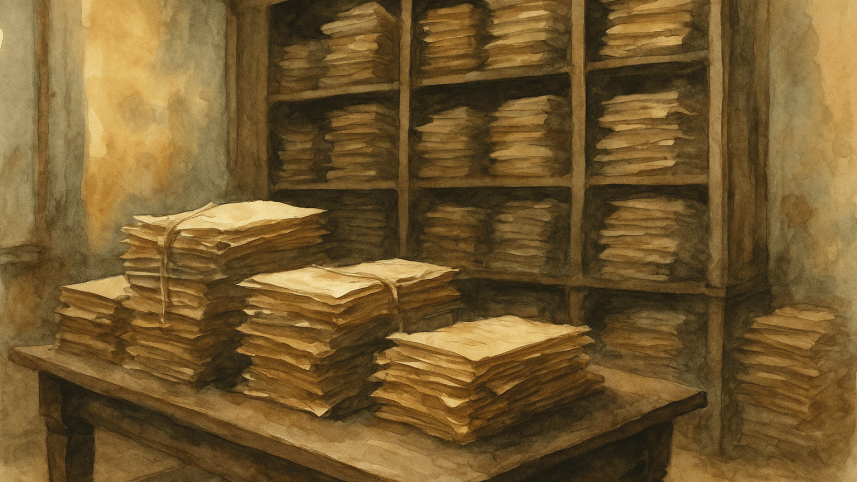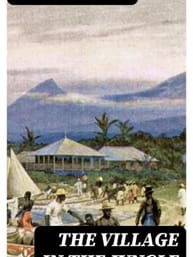Reading power: How everyday texts shaped life under the British Empire

We often think of empire in terms of conquest and control — of armies, borders, and grand narratives. But what if the real story of empire was hidden in the pages of the ordinary? In her award-winning book Required Reading: The Life of Everyday Texts in the British Empire, Priyasha Mukhopadhyay, Assistant Professor in the Department of English at Yale University, turns our attention to the humbler materials of history: railway timetables, tax forms, manuals, petitions. These were the texts that millions lived with, filled out, and sometimes resisted — texts that revealed how reading itself became a tool of governance and survival.
Winner of multiple prizes, including the Samuel and Ronnie Heyman Prize, the Gaddis Smith International Book Prize, and the Morris D. Forkosch Book Prize, Required Reading reimagines the link between reading and power. In this conversation with The Daily Star's Shamsuddoza Sajen, Priyasha Mukhopadhyay reflects on forgotten readers of the past, the traces they left behind in the archives, and what their world of "required reading" can teach us about our own algorithmic age.

Shamsuddoza Sajen (SS): Your book, Required Reading: The Life of Everyday Texts in the British Empire, examines what people actually read under empire. What first drew you to these everyday, often-forgotten materials — and what stories do they tell about life in the British Empire that we usually miss? Was the experience similar or different in other colonies?
Priyasha Mukhopadhyay (PM): Required Reading is set in late nineteenth- and early twentieth-century South Asia, but it was really inspired by the kinds of documents that fill up our own lives. Think: licences, tax returns, applications, manuals, and certificates. We don't read these texts because we want to read them. We read them out of compulsion, or because they help perform a task that's necessary to our lives, or because some higher authority makes us. I became interested in the complicated relationships that people develop with these kinds of materials, and then wondered what those relationships looked like in the past under very different structures of power, like the British Empire. I focus on the British Empire in South Asia, but that experience is hardly unique. You can find very similar dynamics in other British colonies, the colonial holdings of other European powers, and even in Britain itself.
At the heart of Required Reading are forgotten readers from the past. As you might imagine, most histories of reading focus on literate people. One of the things I wanted to show in my book was how everyday reading material, such as manuals and petitions, became a crucial part of everyone's life under the British Empire — whether or not they had the skills to decipher them. I wanted to centre the experiences of a wide range of "readers" from across the spectrum of the British Empire: from illiterate peasants and farmers in Sri Lanka to British soldiers posted across the colony, to educated, hyper-literate women in Madras. I uncover the different ways in which these individuals responded to their reading material: leaving it unread, getting others to read it to them, reading only a part, or treating books and paper as objects to be held and circulated rather than read.
Every time a reader picked up a timetable, they were forced to confront the changes that had been wrought by the British Empire: the building of the railways and the standardisation of time.
SS: You've worked with letters, schoolbooks, manuals, and all sorts of ephemeral texts. What was it like to trace these materials in the archives? Did you come across anything particularly surprising or moving in the process?
PM: I've worked in archives in the UK, US, India, and Sri Lanka. Some of these have been large-scale institutional repositories like the British Library. Others were surprise discoveries, such as when I found a painstakingly kept personal collection of old panjikas in Kolkata. So many of the kinds of texts that I study are ephemeral. They were thrown away by readers in their own time or not considered important enough to be saved for historical purposes. I'm extraordinarily grateful to the individuals who have taken the time, effort, and expense to collect them.
One of my favourite stories about my research concerns the Sri Lanka National Archives. I'd come to the collections because I'd read Leonard Woolf's novel about Sri Lanka, The Village in the Jungle (1913). Before he became a writer, Woolf was a colonial administrator. One of the major themes of the novel, which draws on Woolf's experiences in the country, is bureaucracy. I wanted to see for myself what had happened to all the mountains of paperwork that Woolf complained about with such vehemence.

I spent a few weeks in Colombo, working my way through the endless piles of paper generated by the former colonial government. I had requested access to a file only labelled "Petitions," inside which I found a crumbling, yellow, folded sheet of paper. This was a gun licence, signed by Leonard Woolf — the very same type of paperwork that formed a crucial plot device in the novel he had written. So much of the historical work of literary critics involves combing through the personal papers of writers: their manuscripts, their letters. I was thrilled to find traces of Leonard Woolf the novelist smuggled into a file of paperwork, unlabelled and forgotten.
One of the things I wanted to show in my book was how everyday reading material, such as manuals and petitions, became a crucial part of everyone's life under the British Empire — whether or not they had the skills to decipher them.
SS: Empires didn't just conquer land — they shaped what people read and how they thought. How do these everyday texts help us understand the link between reading and power?
PM: There's a great deal of conversation about how highbrow texts — literary or otherwise — shape our understanding of power. For example, to read Shakespeare as a South Asian in the nineteenth century — even today — exemplified education and cultural authority.
But everyday texts extended the links between reading and power to a much wider range of people living under empire. These were the texts that people interacted with to understand and make their way through the rules of the British Empire. A great example is the railway timetable. The construction of the Indian Railway created a unified system for getting anywhere in the colony. But to actually use this transportation system, you had to consult a timetable. This everyday text allowed readers to figure out which train to catch, what time it would leave the station, and so on. So, every time a reader picked up a timetable, they were forced to confront the changes that had been wrought by the British Empire: the building of the railways and the standardisation of time.

SS: Did you find moments when readers in the colonies read these texts differently — perhaps turning them into tools of resistance or reinterpretation rather than submission?
PM: One of the delightful things about researching histories of reading is that people tend to read texts very differently from how authors and publishers intended. Many of the texts I study were considered "required reading", but this was no guarantee that people actually read them. Early on in my research, I came across Garnet Wolseley's military handbook The Soldier's Pocket-Book for Field Service (1861). All British soldiers were encouraged to buy and carry a copy of this book, and it's often considered a landmark text in military history. But, as I discovered, most soldiers refused to read it. They complained repeatedly about how the book was long, boring, and useless. In the hands of these readers, the Pocket-Book was transformed into an object of humour and ridicule. Not reading it became a badge of honour among these soldiers.
SS: Your work explores how reading once helped build imperial authority. In our digital age — where algorithms shape what we read — do you see echoes of those older power structures?
PM: I'm always struck by the similarities between colonial-era media and the kinds of materials that surround us today. One of the objects I wrote about in my book is The Indian Ladies' Magazine, a literary and political periodical published in Madras. The magazine carried a variety of different articles, but one of the most common kinds was articles about literary texts. In a way, the periodical worked like a modern-day recommender system. It selected works of literature that it thought its readers would want to — and should! — read. The articles themselves did much of the work of "reading" for the magazine's subscribers by summarising plots and providing tidbits about characters. In a sense, the periodical could be considered a prequel to today's AI tools that read and generate summaries for us from large amounts of text.
I'm currently working on a new book that explores how data visualisations were used to tell stories about the British Empire.
SS: What are you currently working on? Are there new archives, media, or stories you're hoping to explore?
PM: When I was writing Required Reading, I looked at some census reports to see what literacy rates across South Asia were in the nineteenth and early twentieth centuries. I came across some fascinating illustrations visualising this data with ladders and little caricatures of people on each rung. It was cute, but also an effective way of communication.
I think we're used to seeing these sorts of diagrams — what we now call "data viz" — everywhere today. But I was surprised to see how far back in history you can find them. I'm currently working on a new book that explores how data visualisations were used to tell stories about the British Empire. So far, the project has taken me to all kinds of archives, from ones documenting the spread of the plague in nineteenth-century South Asia to meteorological records. As in Required Reading, I hope to uncover how people in the past responded to these diagrams. Today, we often hear the term "data literacy." What did it mean to be "data literate" as far back as the nineteenth century?
Send your articles for Slow Reads to slowreads@thedailystar.net. Check out our submission guidelines for details.




 For all latest news, follow The Daily Star's Google News channel.
For all latest news, follow The Daily Star's Google News channel.
Comments